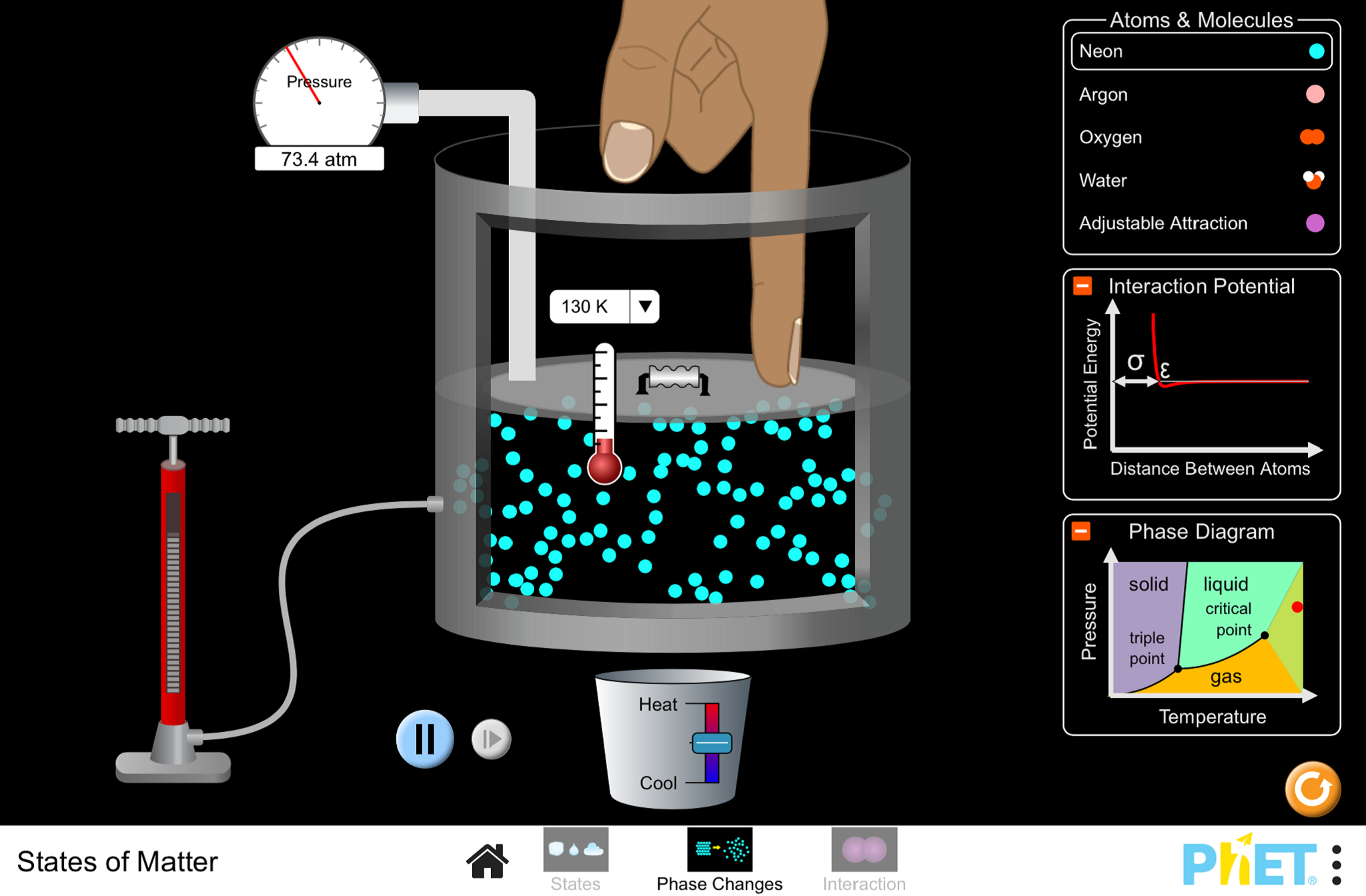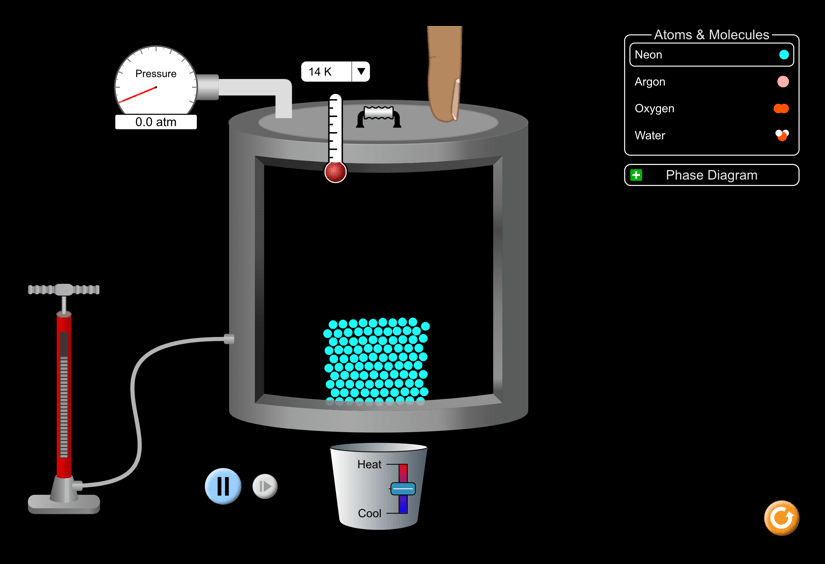
PhET States of Matter Activity Guide / Distance Learning Matter activities, States of matter
Describe characteristics of three states of matter: solid, liquid and gas. Predict how varying the temperature or pressure changes the behavior of particles. Compare particles in the three different phases. Explain freezing and melting with molecular level detail. Recognize that different substances have different properties, including melting.

Phet State of Matter Experiment YouTube
similarities between each state. • Explore how you can change the state of matter of the substance in the container. • Describe the difference in the movement of the particles in a solid, liquid, or gas. • Predict what happens to the substance when it is heated or cooled. • Describe a method to stop the atoms or molecules from moving.

PhET Simulation States of Matter Teaching Resources
Aug 17, 2020. PhET: Rutherford Scattering. PhET: Under Pressure. PhET: States of Matter is shared under a not declared license and was authored, remixed, and/or curated by LibreTexts. Back to top.

PhET Gas Laws Simulation States of Matter Basics May 3, 2021 YouTube
DEIB in STEM Ed. Donate. Heat, cool and compress atoms and molecules and watch as they change between solid, liquid and gas phases.

GitHub phetsims/statesofmatter "States of Matter" is an educational simulation in HTML5, by
Description Heat, cool and compress atoms and molecules and watch as they change between solid, liquid and gas phases. Sample Learning Goals Describe characteristics of three states of matter: solid, liquid and gas. Predict how varying the temperature or pressure changes the behavior of particles. Compare particles in the three different phases.
States Of Matter Phet Lab Answer Key States Of Matter And Phase Changes Digital Lab Phet Simulator
Heat, cool and compress atoms and molecules and watch as they change between solid, liquid and gas phases.

States of Matter Basics American Chemical Society
Today, we're excited to bring you an in-depth guide to understanding the fundamental states of matter using the 'States of Matter: Basics' PhET simulation. P.

PhET States of Matter. Walkthrough the Simulation YouTube
States of Matter: Basics - phet-downloads.colorado.edu
States of Matter Phet Lab Interactive Worksheet by Michael Stoehrmann Wizer.me
States of Matter Description Heat, cool and compress atoms and molecules and watch as they change between solid, liquid and gas phases. Sample Learning Goals Describe characteristics of three states of matter: solid, liquid and gas. Predict how varying the temperature or pressure changes the behavior of particles.

PHET States of Matter Basics PDF Gases Temperature
States of Matter: Basics - University of Colorado Boulder

States of Matter PhET Simulation YouTube
States of Matter - TISS

CH3 States of Matter PHET LAB Stimulation Investigating Matter with States of Matter
States of Matter - phet-dev.colorado.edu

PhET States of Matter Basics Sadler Science
Sample Learning Goals. Describe a molecular model for solids, liquids, and gases. Extend this model to phase changes. Describe how heating or cooling changes the behavior of the molecules. Describe how changing the volume can affect temperature, pressure, and state. Relate a pressure-temperature diagram to the behavior of molecules.

PhET States of Matter SIM Explained YouTube
States of Matter: Basics - phet-dev.colorado.edu

States of Matter Solid, Liquid, Gas Concept of Triple Point, Critical Point PHET
PhET: States of Matter - Basics. not declared. Heat, cool and compress atoms and molecules and watch as they change between solid, liquid and gas phases. Heat, cool and compress atoms and molecules and watch as they change between solid,..

PhET States of Matter Basics Activity Guide / Distance Learning Matter activities, Science
PhET Simulation: States of Matter. published by the PhET. supported by the National Science Foundation. This simulation helps learners visualize how molecules behave in solids, liquids, and gases. Add or remove heat and watch the motion of the molecules as they change phase. Push the pump and change the volume of matter in the closed container.